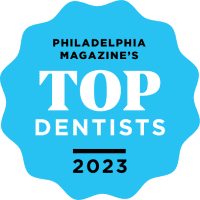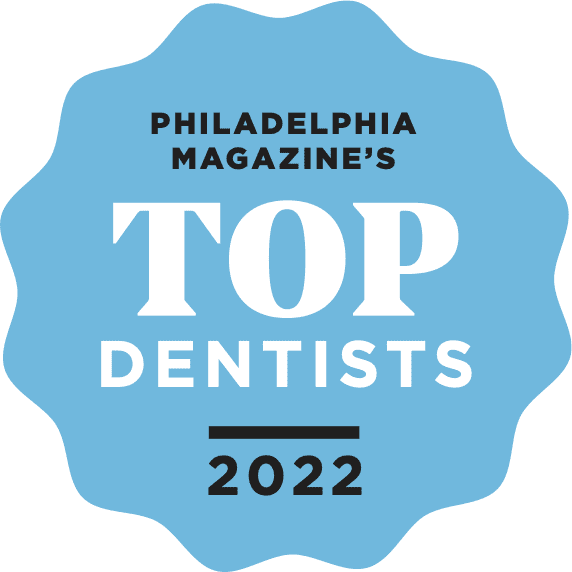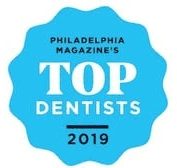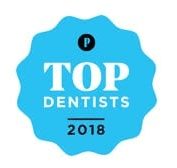Tooth extractions are routine procedures that Dr. Drew Shulman can perform in just one visit. This is a common general dental service at our Northeast Philadelphia dental office.
When a dentist makes every attempt to preserve a natural tooth and that fails, the patient will need a tooth extraction. Dentists provide extractions as a last resort for overcrowded teeth, severely damaged or decayed teeth, or impacted wisdom teeth. A dental emergency can also call for a tooth extraction.

Tooth Extraction in Philadelphia, PA
Dr. Drew Shulman makes it his mission to provide comfortable and complete dental care for patients and families. Before treatment, Dr. Shulman will examine your teeth and gums and review restorative options with you. Dr. Shulman may recommend dental implants, dental bridges, or dentures depending how many teeth you are missing.
Implants, bridges, and dentures look and feel natural for patients who have missing teeth from extraction, injury, or genetics. Dental implants are stable and durable replacements for natural teeth. Restorative options not only look great but will stabilize your smile after tooth loss and can help improve your oral health.
Patients typically recover from the procedure within a few days of treatment. However, if you have excessive bleeding or pain, contact us right away.
Removing Wisdom Teeth
Wisdom teeth are the third molars in the back of your mouth. Wisdom molars can cause overcrowding or impacted teeth. Patients in their late teens or early 20’s may need wisdom teeth removal because of these dental issues.
We offer treatment for wisdom teeth in our Philadelphia family dental office. Wisdom teeth are the third most common teeth to develop, usually in early adulthood. They can cause pain and other issues with overcrowding and brushing. Wisdom teeth extraction will alleviate these problems and more.
Before the procedure, Dr. Shulman will inspect your mouth to decide whether he needs to remove your wisdom teeth. We can often extract wisdom teeth in a single visit.
Remove Wisdom Teeth To Protect Your Health
Removing wisdom teeth will help you avoid increased oral health problems. Often, wisdom teeth don’t have enough space to fully erupt, leading to dental impaction. Dental impaction occurs when a tooth is unable to break through the gum-line. Because impacted teeth cause damage and infection to surrounding tissue, they can be painful and damage an adjacent tooth.
Additionally, wisdom teeth can cause overcrowding. Overcrowding can lead to misalignment of the other teeth, tooth decay, and gum and jaw problems. Removing your wisdom teeth can prevent these possible issues and can help maintain healthy gums.
Extracting Wisdom Teeth: The Procedure
Dr. Shulman removes wisdom teeth using a surgical procedure in his office. First, he will use local anesthesia to numb the area and extraction site. Next, he removes the gum tissue surrounding or covering the tooth. Then he gently strips away the connective tissue from the tooth and bone.
Finally, he removes the tooth and sutures the gum shut. Dr. Shulman can complete this tooth extraction procedure in one visit. He will send you home with instructions on how to keep the area clean while it heals. You can use an ice pack to reduce swelling, but don’t take pain medication until 24 to 48 hours after the procedure.
Wait until after 24 hours to brush and floss again to not disturb the healing process. You can accidentally dislodge the blood clot that is helping your mouth heal. The blood clot is important in many ways. It protects the exposed bone and nerve endings in the empty socket, reduces the risk of infection, and helps the tissue begin to rebuild.
If this clot is dislodged too soon, it can lead to a painful condition called dry socket. Dry socket slows healing and will need additional care from your dentist or oral surgeon.
To help protect the blood clot and promote healing, avoid rinsing your mouth vigorously or using a straw for at least the first 24-48 hours. These actions can create suction that can dislodge the clot. Stick to soft foods and chew away from the extraction site to avoid irritation.
As you reintroduce brushing and flossing, be gentle around the area to avoid disturbing it. Rinsing with warm salt water after the first day can keep the area clean and reduce swelling. Always follow your dentist’s instructions carefully to have the smoothest recovery.
Patient Review
Tooth Extractions FAQs
Is the tooth extraction process painful?
No, today’s modern procedures for tooth extractions are not painful. Dentists use a local anesthesia to prevent feeling during the process. Our dental care team will make sure that you are completely comfortable as well. You can take Tylenol or other Acetaminophen pain relievers 24 hours after the procedure to reduce post extraction discomfort.
Will my dental insurance cover my tooth extraction?
Yes, most dental insurance plans cover the cost of tooth extractions. Tooth extractions are a necessary procedure for some patients to maintain good oral health. Contact us today for more on what your plan can cover, or contact your dental insurance provider directly.
Is it better to have root canal or extraction?
It’s much better to get a root canal treatment and save your natural tooth rather than the dentist pull your tooth. Dentists can save decayed teeth using a root canal procedure the majority of the time. A dentist extracts a tooth because there is no other option that can save the tooth.
If your mouth suffers tooth loss, it can mean a larger risk of gum disease, shifting teeth, and dry socket. Consult with our dentist for the best treatment option for your needs.
Are there restrictions to follow after a tooth extraction?
Patients should avoid smoking, drinking through straws, and using their mouth in a sucking motion. A sucking motion can stop the healing process of the open gum. Your gums need time to clot, which it cannot do without rest. Patients should also avoid drinking alcohol (including using mouthwash) for at least 24 hours after your procedure.
Can you eat normally after a tooth extraction?
After a tooth extraction, patients must be careful and aware of the foods they consume. We suggest that patients eat a soft diet for 24 hours post-operation. This may include foods such as yogurt, Jell-O, smoothies, and milkshakes. Once your mouth begins to feel back to normal, you may begin to slowly incorporate different foods into your diet.
Schedule A Dental Exam Today
Do you have a decayed or damaged tooth? Maybe your wisdom teeth are coming in and you’ve noticed overcrowding. Call Dr. Shulman for a consultation to evaluate your needs and discuss treatment options at (215) 372-1142.






